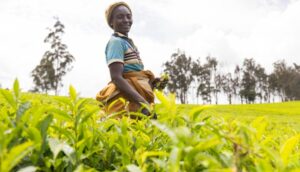SABMiller is the world’s second-largest brewer with more than 200 beer brands and some 70,000 employees in over 75 countries. The company’s approach to sustainable development is a key element of SABMiller’s business strategy. Its success is based on solid share value strategies: supporting the role that small businesses play in generating economic growth and reducing poverty. SABMiller is using its value chains from farmers to retailers to drive inclusive growth, sustainable resource use and alcohol responsibility.
THE OPPORTUNITY
In Latin America,it is commented that there are more than 2,000,000 mom and pop shops(SABMiller has 780,000 customers in 6 countries), and they represent 80% of the total sales volume of SABMiller in Latin America. These small businesses provide daily sustenance for as many families, that is, about 10 million people (the average size of a Latin- American family is 5). An important proportion of these “tiendas” are located in marginalized and poor zones, and both owners and customers belong to a low income population.
In Latin America, 34.6% of the population lives in poverty (1), it can be assumed that at least this percentage of mom and pop shops comes from low poverty levels and survival. The “tienda” has an important role as moneylender to low income population;also,the personal knowledge of their customer allows them to go beyond a business relation.
The “tiendas” are important entities in their communities. The “tenderos” are community references and opinion leaders; their shops are centers of information and integration for the neighborhood, it builds social capital and creates a culture of empathy. Therefore, they represent ideal figures to lead initiatives that benefit the community.
They represent not only an opportunity for social change, but also an opportunity to create value for companies that rely on this channel as a means of reaching the consumer. Usually, the “tienda” is owned by the head of the household. For the most part, the “tiendas” are owned or managed by women,near,70% of owners are women.(2)
For these “tiendas” there are many challenges, such as the lack of basic business capabilities. Over 90% of these businesses operate without adequate management (3), with inefficient product distribution, and customers who are increasingly opting for larger businesses.In the past decade, these mom and pop shops have experienced losses in sales and in profit margins due, among other causes,to the growth of supermarket, auto service shops and convenience stores and changes of consumption patterns of the population.
THE STRATEGY
SABMiller’s regional program addresses these shortcomings by constructing relationships with the “tenderos”, their families as well as with their communities.Summarizing, the “tiendas” as economic units can be an efficient vehicle to rescue a family from poverty, and can be an excellent vehicle for community work once they have been able to become consolidated commercially. Hence, investing in social and leadership skills of the “tenderos” together with investing in their business consolidation will enable the use of the full transformational potential of these people.
The creation of a strategy and a social investment program for the “tenderos” will enable the improvement of their quality of life and that of their families, develop business skills to make their business grow and develop their leadership skills and the projection of the “tiendas” on the community they serve. To strengthen its distribution network strategically, SABMiller through its subsidiaries in 6 Latin American countries,(4)launched the program in August 2013, whereby 40,000 shopkeepers and more than 10 million people will be impacted over the next 5 years.
The main purpose of the “4e,Camino al Progreso” is to improve the quality of life of the “tenderos” and their families, as well as the well-being of their communities. Therefore, the 4e program offers business training to “tenderos” and at the same time outreach to tender communities. To carry out its strategy, SABMiller has made a strategic alliance with FUNDES, a private development organization, which is an expert in micro, small and medium enterprise development
in Latin America. During the last 10 years, FUNDES has supported over 20,000 shopkeepers in different countries in Latin America. SABMiller built the “4e methodology” with 4 stages and 3 components and FUNDES carries out the training for Tenderos in six countries. The first phase consists of training technical and business skills to achieve efficiency and professional decision-making. The second focuses on family-business interaction and seeks to generate cohesion among its members. The third emphasizes the importance of environmental and community factors in order to foster responsible leadership. The last intends to identify and support community leaders in the planning of initiatives, which impact the community.
In addition and throughout the phases, the program comprises 3 components: a diagnosis, for the identification of the shops’ strengths and weaknesses; a training, which allows for shopkeepers to be more competitive; and an on-site consultancy, which fosters strategy development and implementation for the specific business.
RESULTS- VALUE FOR BUSINESS AND SOCIETY
The program just finished the first implementation with 3,614 Tiendas; there are some short-term results,as well as early indication of larger impact in the mid-and long-term.
Business results for SABMiller:
- Sales increase by approximately 10%
- Business sustainability: Tiendas with a new business model of success driving local development
- Customer loyalty: strengthened relation
- Image and reputation
Business results for mom and pop shops:
- Sales increase by 17%
- Margin increase by 2%
- Relation store-supplier (SABMiller) strengthened, both commercially and procurement process
- Shopkeepers awareness about the long-term relation with customers
- Management improvements: income and expenses control, wage assignment, consumption control, among others
Social results
- Growing livelihoods: the program has benefited almost 4,000 families, who on average are composed of 4 people; therefore the program has currently impacted about 16 thousand people
- Over 3,000 jobs have been strengthened and maintained; of which more than 2,100 correspond to woman.
- Elaboration of approaches to benefit the community, such as accomplishing a better social life through improved communication, reducing crime rates and creating spaces for the development of young people
Lessons Learned, Challenges and Outlook
- The program “4e,Camino al Progreso” is generating sustained changes in the mom and pop shops’ business model. The shops obtain a new vision that will improve business profitably over time, which constitutes the base for a better quality of life and community development.
- However more training/support/empowerment/investment is needed to reinforce knowledge in the medium term in order to continue providing the shopkeepers with business management tools
- The transfer of technological tools could complement the current program both to improve the management of the business, as well as to continue training and guiding to tenderos
SABMiller has seen the importance of supporting community development initiatives in shopkeeper leaders, but there is a wide range of opportunities to generate business networks that can work on a consolidated basis to continue the process of business improvement and social transformation.
(1)CEPAL, Portal de Información estadística (http://estadisticas.cepal.org/)
(2) 4e Project, 2014. With information of 3614 “tiendas”
(3) FUNDES, 2014.
(4)Colombia,Perú, Ecuador, El Salvador, Honduras and Panamá










